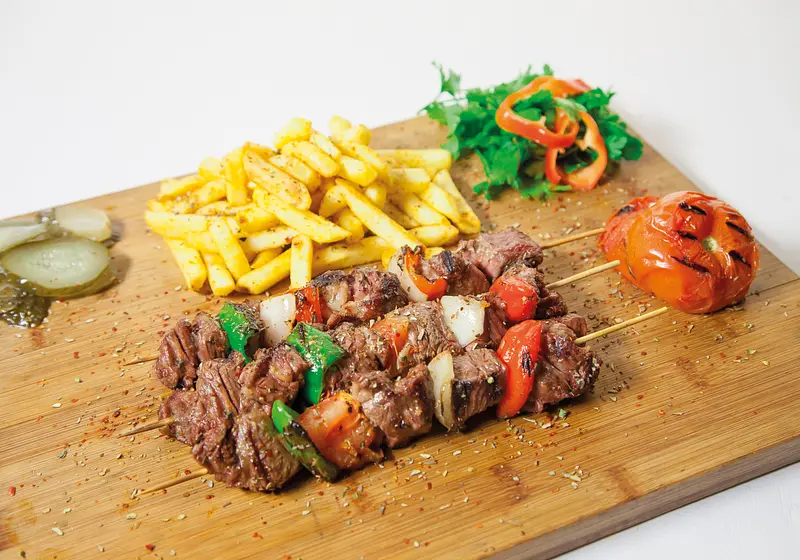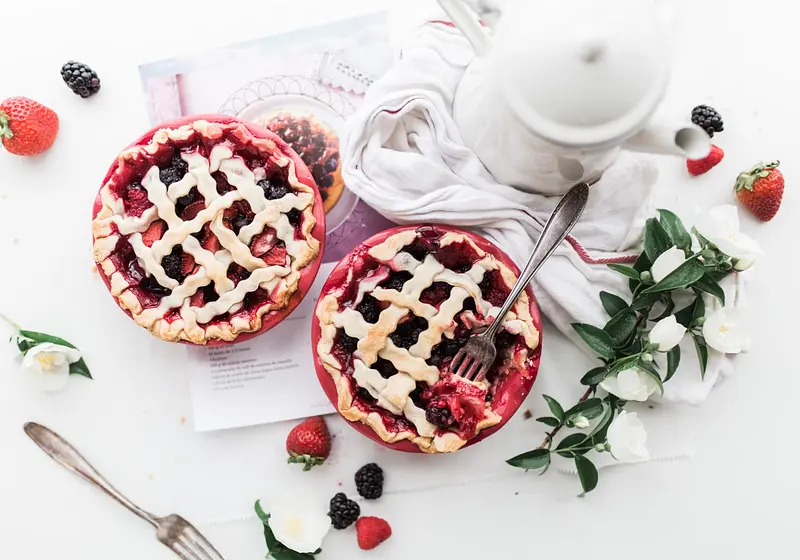Growing up, I never maintained a sustainable diet. There would be days where I would eat 5000 + calories in a day, and days where I would eat less than 500 calories. I found myself constantly attracted to the unhealthy option, to the point where anything that was not sweet or carb-loaded tasted bad.
This problem escalated when I moved to a new school and started going out for lunch every day: my friends and I would go to our local bakery and buy soda, pastries, doughnuts, ice cream, candy… you name it! These lunches out became a daily routine and were often what I most looked forward to when going to school. The problem was that I associated this daily routine with happiness.
Sitting in coffee shops for hours and buying sugary Starbucks drinks were my favorite things to do. When I was most stressed because of a test, or I felt like I had no friends, I would go to a coffee shop and buy everything. Before I knew it, I was addicted.
Then, the worldwide pandemic hit. I could not go out for lunch with my friends every day because of online school. All of our non-essentials were shut down.
And I found myself experiencing a form of withdrawal. I realized that the lack of sweets and sugary drinks made me feel sad, like something was preventing me from being happy.
After a couple of weeks, I had an epiphany. I had associated these foods with happiness and I associated everything else with unhappiness. So, I set out on a mission to fix my diet.
And it didn’t work. Over and over again, I would do nothing but salads and rice cakes for a couple of days, only to binge-eat desserts afterwards. It was incredibly frustrating.
Eventually, after much experimentation and failures, I managed to find a healthy diet that worked for me. When school opened up again, I started going out with my friends for lunch every day again. But, this time I didn’t fall back into my old habits. Here is how I did it and how you can too :
Let us slide into your dms 🥰
Get notified of top trending articles like this one every week! (we won't spam you)What are sustainable eating habits and why are they important?
Sustainable eating habits means developing a stable diet that you can maintain in the long term. In order to make a permanent change in your eating habits, you should focus on eating in a way which you can maintain for the next 15 years. For example, eating too much junk food is not sustainable because you will gain weight or have health problems.
But eating ‘clean’ 24/7 is not sustainable, because you will not feel like you are enjoying your meals and it can lead to an eating disorder. Other things to consider when wondering if your diet is sustainable are your budget, time constraints and the type of food available where you live. Making sure your diet is sustainable is extremely important because constantly having to think about your food choices can be energy-consuming and frustrating. Eventually, you will probably give up and resort to an even worse diet than before!

Take the Quiz: What Ramen Are You?
There are sooo many pre-packaged Ramen brands out there. Which one should you try/best fits your personality?
Budget
This was a huge challenge for me! Junk food tends to be cheaper than healthy food, because companies can use cheaper quality and processed ingredients. In fact, a study by Plutus Foundation of 27 studies in 10 countries found that unhealthy food is about $1.50 cheaper per day than healthy food. Healthy food also tends to be packaged in smaller quantities, so you have to buy more of it.
But do not get discouraged! There are many ways to lower your grocery bill. Make sure to buy generic instead of name brands (they are normally similar quality), stick to your grocery list and take advantage of all of the coupons you can find!
Preparation Time
If you are spending three hours preparing and planning your food a day… you probably will not be able to keep it up! Consider how much you enjoy cooking and how much time you can dedicate towards meal planning. For example, I find cooking very relaxing so I enjoy spending twenty minutes on my lunch. Here are a couple of habits you can adopt if you want to minimize the time spent in the kitchen :
- Plan out your meals on Sunday.., or at a time when you are not very busy
- Consider the ingredients you already have in your home when meal planning
- Develop 5+ easy meals which you can make in under 10 minutes
- Make meals in bulk, so you can eat them for multiple days
The 80/20 Rule
The 80/20 rule is a well-known rule that everybody should follow if they want to become healthier. It states that 80% of your food choices should be healthy and 20% should be unhealthy. This means that you never restrict your diet, or completely cut out foods that you love!
Instead, you focus on having a balance between the two. In terms of everyday eating, you should eat a healthy breakfast, lunch, dinner and then you can have dessert in the night! Remember, that this rule does not apply to holidays or special occasions! In those scenarios, you can eat whatever you enjoy in moderation and should not feel guilty at all.
Calories
How many calories should I be eating a day? This is a question almost everybody has asked themselves at some point. You were probably told 1200-1600, but that could be too much or little for different people!
The amount of calories you need all depends on your height, age and amount of activity. You can use this calculator to figure out how many calories you should eat in a day. Something which I learned is that you do not need to ‘work off’ all of the calories you consume in a day.
For example, a person who eats 1400 calories a day does not need to burn 1400 calories on the treadmill to lose weight. According to GoodTO, the average person burns 1800 calories a day by doing nothing! Your body naturally burns calories just to function at a normal capacity.
Enjoyability
This is the most important factor in any diet. You want to make sure that you enjoy the food that you are eating. There are probably some healthy foods which you really enjoy, and some that you hate!
Experiment until you find foods that you actually enjoy and make those foods your primary sources of nutrition. The more you eat healthy foods, the more your body starts to crave and enjoy those foods. Reprogram your mindset so that your mind wants to choose the healthy option.
Overall, in order to create a sustainable diet, you must make sure that it is feasible in the long run and consider other external factors. Even though it might be hard in the end, you will feel 1000x better about yourself and much more put together. Implementing the habits mentioned above is the first step towards a long journey.
It is important to stay motivated, keep track of small improvements and not to get upset when you mess up! Happy eating!






.jpeg)
.jpeg)











